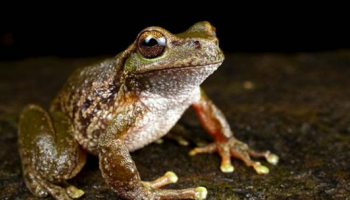Genetically modified food could save the world – although it almost certainly won’t. Take, for example, the genetic modifications made to cassava, a root vegetable eaten as a subsistence food by millions of people in the third world. Cassava has already been genetically modified to produce Vitamin A. It has also been engineered to use the cyanide it naturally produces to make protein instead. Huge numbers of children on cassava-based diets suffer from vitamin A deficiency or malnutrition and such a GM crop could make a huge difference to their lives.
The unfortunate reality, however, is that the vast majority of GM crops grown today are simply herbicide resistant versions of plants. These are no more nutritious than the originals but allow farmers to spray herbicide far more liberally, which only amplifies the obvious negative environmental consequences. Some genetic modifications are completely harmless, such as one where scientists modified a tomato to put back a sugar gene that had been lost over the years of folks breeding the best looking (rather than the best tasting) tomatoes. Yet those scientists weren’t allowed to actually eat the tomato due to restrictions on GM food, despite the fact that the tomato they made was arguably more natural than the ones we buy in stores. The frustrations and missed opportunities that seem to comprise the history of GM food are epitomised by what happened in the USA recently.
The story began when Monsanto, owner of a huge portion of the world’s GM patents, invented a new kind of soybean that produces Omega-3 fatty acids. As everybody who watches television advertisements knows (which is probably none of you since you all just illegally download your TV shows), a diet high in Omega-3s will guarantee your survival and good health well into a time in the distant future when the last post-modernist is finally, thankfully, dead. As somebody deprived of the fat of over-fished fish, I thought this was good news. Too good, as it turns out. Monsanto, in yet another example of the unique power of capitalism to not only solve the world’s problems in an ingenious manner but also remould the solution into something completely useless that sells for slightly more money, realised that fish oil is worth more than soy milk and so took out a patent (US no. 20090202672) outlining their plans to feed the soy products to farmed fish, and then extract the fish oil (now even higher in the mysterious and powerful ‘Omega-3’).
Aside from the obvious fact that it would be easier to just eat the bloody soybeans, fish farming is a particularly nasty practice tolerated in part because of a pervasive myth that fish are not sentient and/or do not suffer like cuter land animals do. This myth is partly due to the fact that fish lack a developed limbic system and partly due to the dearth of research that has been done on the subject. This is starting to turn around, as science inches its way towards common sense conclusions that are pretty obvious to anybody who cares to pay attention (much in the same way that it took western science hundreds of years to acknowledge that we might want to try to avoid subjecting chimpanzees to a vast array of cruel experiments). Still, more research is being done on the subject. A Canadian meta-study by Chandroo and Duncan that assessed the available evidence concluded that fish are sentient and do suffer, and warned about the high densities, feeding strategies, genomic manipulation, handling & transportation methods and slaughter techniques of fish farms. It is of course possible that Monsanto will use the soy in other products, and this is only an American example, but it demonstrates how a potentially useful breakthrough in genetically modified food is being put in jeopardy by the desire to make the greatest possible profit.
This is why it is a little bit annoying and incredibly silly to say that all genetically modified food is good or bad. A potato could be modified to cure herpes, or it could be modified to produce a poison gas that kills all of the world’s grandparents.* It seems wise to be very wary of those who are always in opposition or always in support of GM food – it’s difficult to make a blanket judgement about such a broad issue without resting on some false assumptions and prejudice. Let’s just be sensible, but also make sure evil Monsanto keep their nasty ‘food’ out of Australia. If I may poignantly conclude by paraphrasing the great Cookie Monster, “GM is a sometimes food”.
*neither of these things are, to the best of my knowledge, possible.


